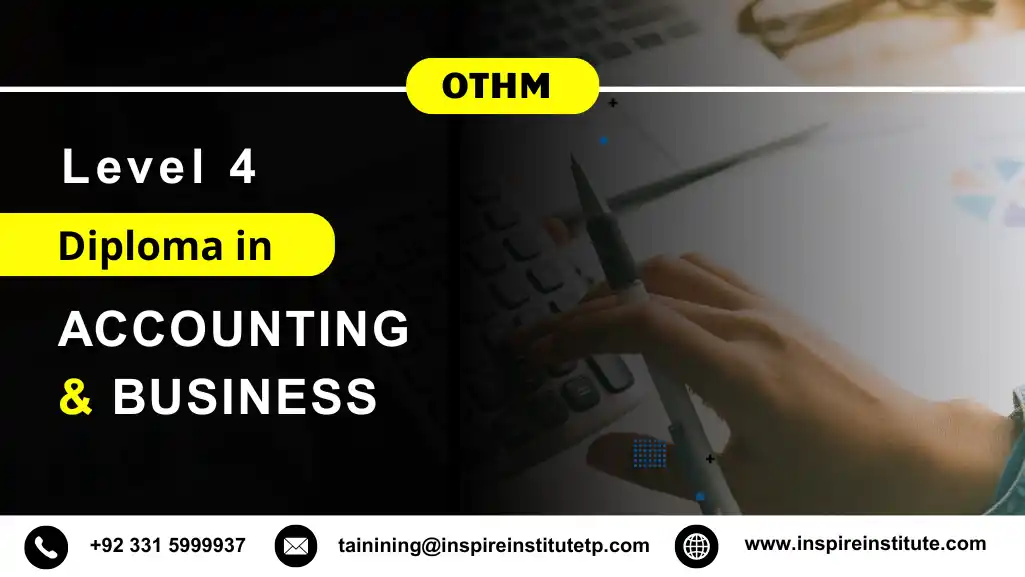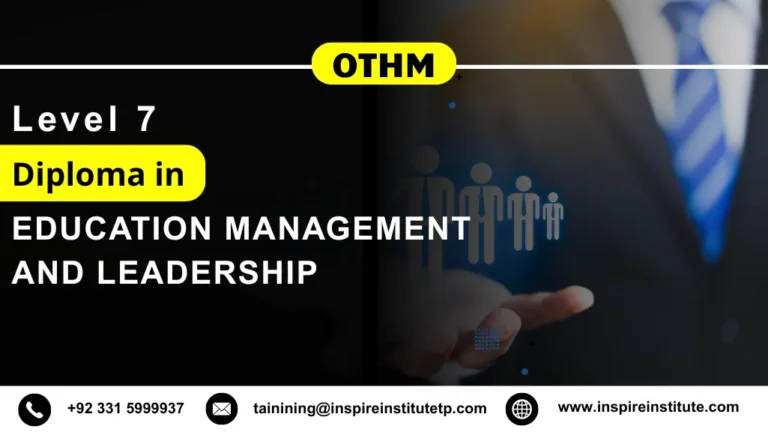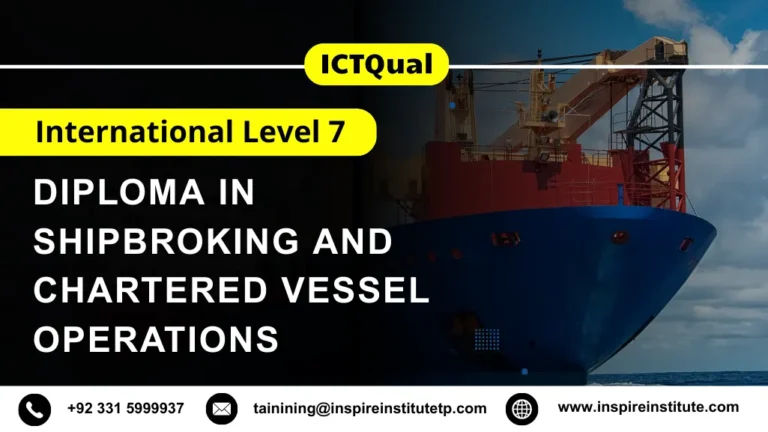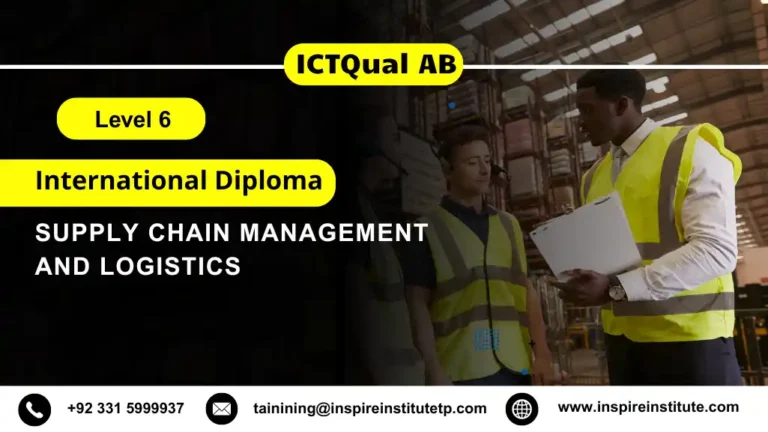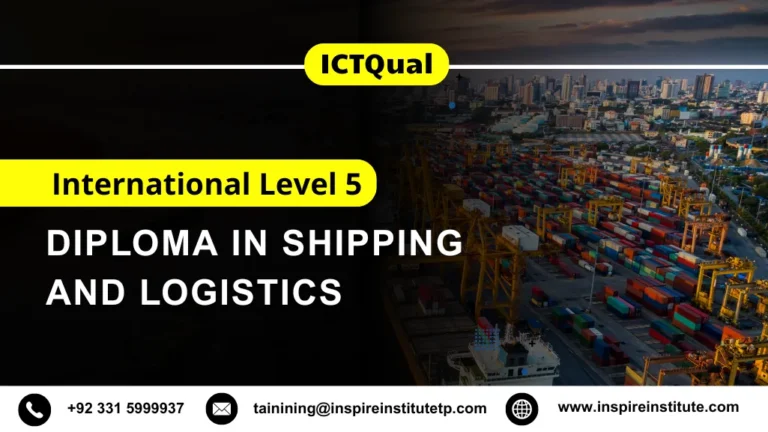OTHM Level 4 Diploma in Accounting and Business
The OTHM Level 4 Diploma in Accounting and Business is a prestigious UK-recognised qualification designed to launch your career in finance, accounting, and business management. Combining essential financial principles with core business strategies, OTHM Level 4 Diploma in Accounting and Business provides the skills and knowledge needed to excel in today’s competitive global market. Whether you aim to become a professional accountant, finance manager, or business leader, this course sets the perfect foundation for success.
Why Choose this Qualification
Choosing the OTHM Level 4 Diploma in Accounting and Business is a strategic step toward building a rewarding career in finance and management. Here’s why this qualification stands out:
- Supports Global Career Progression
Opens doors to opportunities in both the public and private sectors across finance, business operations, consultancy, and corporate strategy. - Globally Recognised and Regulated
Awarded by OTHM and regulated by Ofqual (UK), this diploma is internationally respected by employers, universities, and professional bodies. - Comprehensive Curriculum
Covers core topics such as financial accounting, management accounting, business law, economics, and marketing—ensuring a well-rounded business education. - Career-Ready Skills
Gain practical, real-world knowledge in budgeting, analysis, reporting, and strategic decision-making—skills that employers highly value. - Flexible Learning Options
Available through both in-person and online delivery, making it ideal for full-time students or working professionals seeking flexibility. - Pathway to Higher Education
This qualification serves as a direct entry route to Level 5 diplomas or the second year of a bachelor’s degree in accounting or business-related fields. - Enhances Professional Credibility
Perfect for aspiring accountants, business analysts, finance officers, and entrepreneurs aiming to strengthen their qualifications and industry standing.
Course Overview
Ofqual Regulated Qualification
Course Level: 4
Average Completion Time:
6-24 Months
Study Units: 5 Units
Evidence & Assignment Based
Qualification Structure
The OTHM Level 4 Diploma in Accounting and Business qualification consists of 6 mandatory units, 120 credits, 1200 hours Total Qualification Time (TQT) and the recommended Guided Learning Hours (GLH) for this qualification is a minimum of 600 hours.
Mandatory Units
- Academic Writing and Research Skills (20 credits)
- Business and the Economic Environment (20 credits)
- Principles of Financial Accounting (20 credits)
- Quantitative Methods in a Business Context (20 credits)
- Management Accounting (20 credits)
- Leading and Managing Teams (20 credits)
Who Should Take This Course
The OTHM Level 4 Diploma in Accounting and Business is ideal for individuals at the early stages of their career or those looking to transition into the fields of finance, accounting, and business management. This course is perfect for:
- Aspiring Accountants and Financial Analysts
Individuals aiming to build a strong foundation in accounting principles and financial management. - Business and Commerce Students
Learners who want to complement their academic studies with a practical, industry-focused qualification. - Career Changers
Professionals from non-financial backgrounds who wish to move into roles within accounting, finance, or business operations. - Entrepreneurs and Small Business Owners
Individuals seeking to enhance their financial literacy and business acumen to better manage their ventures. - Recent School Leavers
Those who have completed secondary education (A-levels or equivalent) and are looking for a practical alternative to university. - Employees Seeking Promotion
Professionals already working in junior finance or admin roles who want to upskill and qualify for higher-level positions.
This diploma is your gateway to both academic progression and employment in a variety of sectors including banking, consulting, corporate finance, and beyond.
Course Benefits
The OTHM Level 4 Diploma in Accounting and Business equips learners with practical knowledge and versatile skills essential for success in today’s competitive business and finance world. Key benefits include:
- Comprehensive Business and Finance Knowledge
Gain a deep understanding of financial accounting, business law, marketing, economics, and management principles. - Career-Ready Skills
Develop critical thinking, analytical abilities, and problem-solving skills directly applicable to real-world financial and business environments. - Globally Recognised Qualification
Earn a diploma regulated by Ofqual (UK), trusted by employers, universities, and professional bodies around the world. - Flexible Learning Options
Study full-time, part-time, or online—ideal for working professionals or learners needing a flexible study schedule. - Progression to Higher Education
Seamlessly advance to Level 5 Diplomas or the second year of a Bachelor’s degree in Accounting, Finance, or Business Management. - Boost Employability
Stand out in the job market with a qualification that demonstrates your financial competence and business insight. - Strong Foundation for Professional Certifications
Prepare for further studies or certifications with ACCA, CIMA, or other leading accounting bodies. - Suitable for Various Industries
Open doors to careers in banking, corporate finance, auditing, consultancy, entrepreneurship, and public sector finance.
Eligibility Criteria
To enrol in the OTHM Level 4 Diploma in Accounting and Business, applicants must meet the following eligibility requirements:
Minimum Age Requirement:
Learners must be 18 years of age or older at the time of enrolment.
Educational Background:
A relevant Level 3 qualification (such as A-Levels, BTEC, or an equivalent international qualification) is recommended.
Work Experience (Optional):
While not mandatory, relevant work experience in accounting, finance, or business may support your application and enhance learning.
English Language Proficiency:
Non-native English speakers should demonstrate English proficiency—typically an IELTS score of 5.5 or equivalent—or proof of prior education in English.
The Qualification Process
Here is a step-by-step guide to help you understand the entire journey from pre-registration to certification:
- Self-Assessment:
Begin by evaluating your eligibility for the course. Ensure you meet the entry requirements, such as relevant qualifications or professional experience, as outlined for the program. - Registration:
Complete your registration by submitting the required documents, including a scanned copy of a valid ID, and pay the necessary registration fee. This is your first official step in the qualification process. - Induction:
An assessor will conduct an induction session to verify your eligibility and introduce you to the evidence requirements. During this stage:- If the assessor finds that you meet all the necessary criteria, you will proceed to the next step.
- If you do not meet the entry requirements, your registration will be canceled, and your fee will be refunded.
- Evidence Submission:
Based on the assessment criteria, you will need to submit evidence demonstrating your knowledge and competence. Consult with your assessor if you need clarification on the type and nature of the evidence required. This evidence could include assignments, projects, case studies, or professional experiences related to sustainability management. - Feedback and Revision:
The assessor will review your submitted evidence and provide feedback. Evidence that meets the required criteria will be marked as “criteria met.” If there are any gaps, the assessor will highlight them, and you will need to address those gaps by revising and resubmitting the evidence. - Competence Evidence:
Submit your final evidence demonstrating that you have successfully achieved all the learning outcomes. The assessor will mark your submission as “Criteria met” once everything is up to standard. - Internal Quality Assurance (IQA):
After your evidence is approved by the assessor, the Internal Quality Assurance Verifier (IQA) will review it to ensure that the assessment was carried out consistently and according to OTHM standards. - External Verification:
The IQA then presents your portfolio to OTHM External Quality Assurance Verifiers (EQA) for final confirmation. The EQA may contact you directly to verify the authenticity of your evidence. - Certification:
Once all internal and external checks are completed to satisfaction, OTHM will issue your official certificate, confirming that you have successfully achieved the qualification.
This comprehensive process ensures that learners demonstrate all necessary competencies and meet the high standards required for the OTHM Level 4 Diploma in Accounting and Business.

